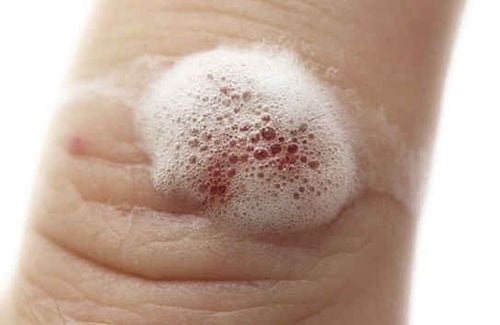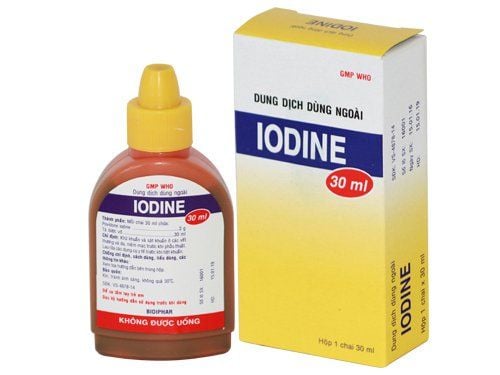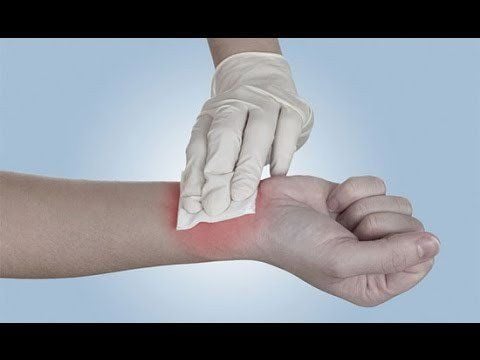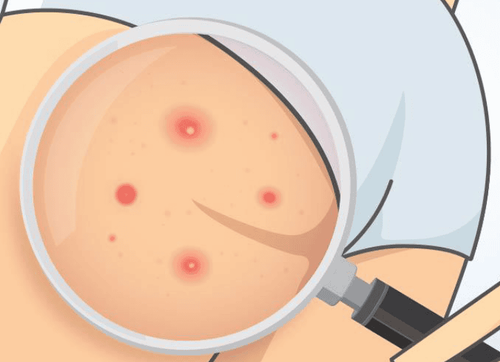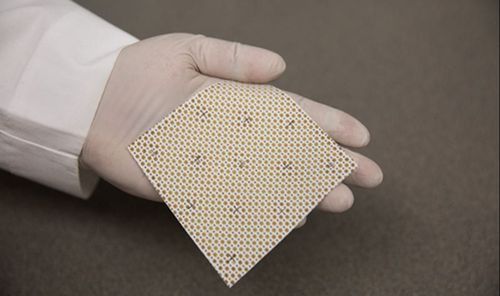Open wounds provide an ideal environment for bacterial growth and infection. Hydrogen peroxide is frequently used to clean these wounds. What is medical hydrogen peroxide and is it appropriate for wound disinfection?
1. What is medical hydrogen peroxide?
Medical hydrogen peroxide, also known as hydrogen peroxide, is an antiseptic solution that works to clean wounds, ulcers, clean the pulp cavity or root canals, clean and remove earwax,...
When applied to an open wound, the solution produces bubbles due to the release of oxygen, which helps to remove tissue debris and pus. This solution also has mild hemostatic properties, although it is not as effective as specialized hemostatic solutions.
2. Is hydrogen peroxide the best option for disinfection?
The bubbling action of hydrogen peroxide is accompanied by a burning sensation, which can be quite painful. This discomfort can deter individuals, particularly children, so if they only know how to use medical hydrogen peroxide, it is easy for them to avoid cleaning the wound, making the wound more susceptible to infection.
When there is an injury, white blood cells gather in large numbers at the site. In addition to connective tissues and blood vessels, hydrogen peroxide also has a negative impact on white blood cells. White blood cells are destroyed upon contact with medical-grade hydrogen peroxide, significantly impairing the body's immune response, as white blood cells are essential in fighting infection. Injuries have already weakened tissues and depleted white blood cells, leaving the wound susceptible to infection once the effects of hydrogen peroxide wear off.
While medical-grade hydrogen peroxide is effective at killing bacteria, it also damages healthy cells by breaking down the catalase enzyme found in all cells. This can make them unable to participate in the wound recovery process.
With advancements in modern medicine, a wide range of solutions for wound cleaning are now available, making hydrogen peroxide no longer the optimal choice for disinfection. While each solution has its own unique advantages and disadvantages, but almost all meet the criteria such as strong bactericidal ability, gentler on the skin, and minimal discomfort,... It's best to talk to the doctor before choosing a disinfectant.
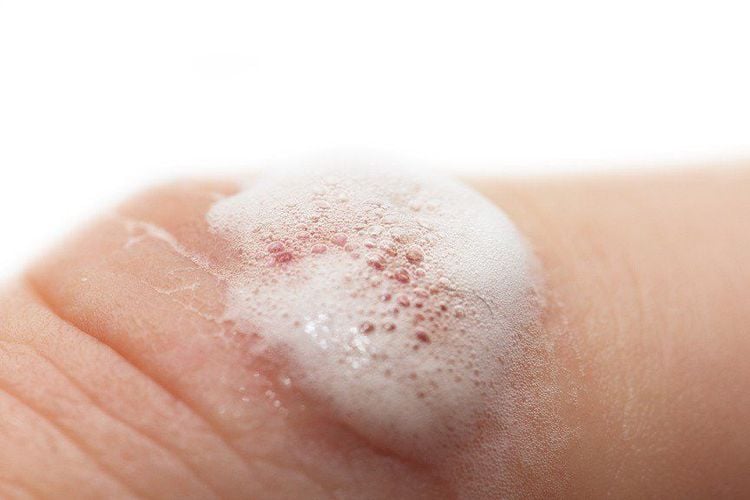
3. In what cases should hydrogen peroxide be not used to disinfect wounds?
Despite its various applications, excessive or improper use can have adverse effects, such as burns that worsen the wound. The following cases should avoid using hydrogen peroxide for disinfection:
- Open wounds: Patients with open wounds should be especially careful when using hydrogen peroxide to clean the wound. Due to its high oxidizing properties, hydrogen peroxide can damage healthy skin cells, a process known as skin erosion. While all disinfectants kill bacteria, they also kill bodily cells. Excessive or continuous use of hydrogen peroxide can lead to skin burns, irritation, damage to healthy cells, and delayed wound healing. Therefore, hydrogen peroxide should not be used to clean open wounds. Instead, the wound should be cleaned with clean water, treated with medication, and bandaged securely to prevent infection.
- Granulating wounds: Connective tissues are crucial for wound healing and promoting granulation. But the strong oxidizing nature of the hydrogen peroxide solution will destroy the newly born cell layers, hindering the granulation process. The already damaged blood vessel cells are made worse by the use of hydrogen peroxide as a disinfectant, disrupting wound circulation and deprive the wound of necessary blood and oxygen. This interruption of the nutrient supply for wound healing slows down the healing process, and can even lead to further ulceration and necrosis, especially in sensitive, granulating wounds.
- Ear cleaning: Diluted hydrogen peroxide can be used to soften earwax, making it easier to remove. However, excessive use of hydrogen peroxide should be avoided. The ear canal is extremely sensitive, and even minor scratches can lead to infections and serious ear conditions, including deafness. While hydrogen peroxide can be effective in treating ear conditions such as ear discharge, itching, and tinnitus due to its ability to remove pus and disinfect, improper use can cause burns, tissue necrosis, and narrowing of the ear canal. Therefore, it's essential to dry the ear thoroughly after using hydrogen peroxide to prevent any residual solution from remaining in the ear.
- Cleaning internal wounds: Internal cavities such as the intestines and colon should never be cleaned with hydrogen peroxide during surgery. This is because the release of oxygen within a closed cavity can lead to colitis, colon rupture, intestinal necrosis, and colon rupture.
So, even though hydrogen peroxide is meant to be used on your skin, it can cause numerous harmful side effects if used incorrectly. Always read the instructions carefully and talk to your doctor if you're not sure how to use it.
To arrange an appointment, please call HOTLINE or make your reservation directly HERE. You may also download the MyVinmec app to schedule appointments faster and manage your reservations more conveniently.




